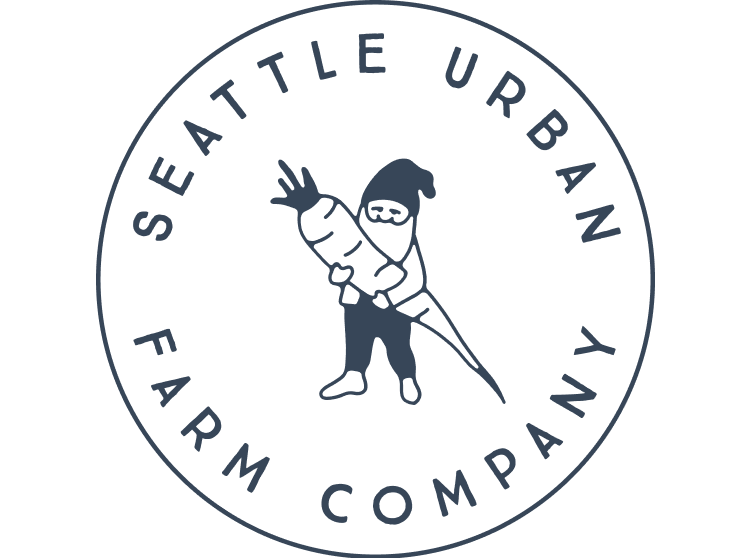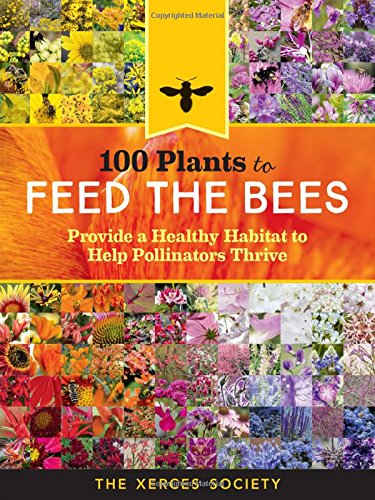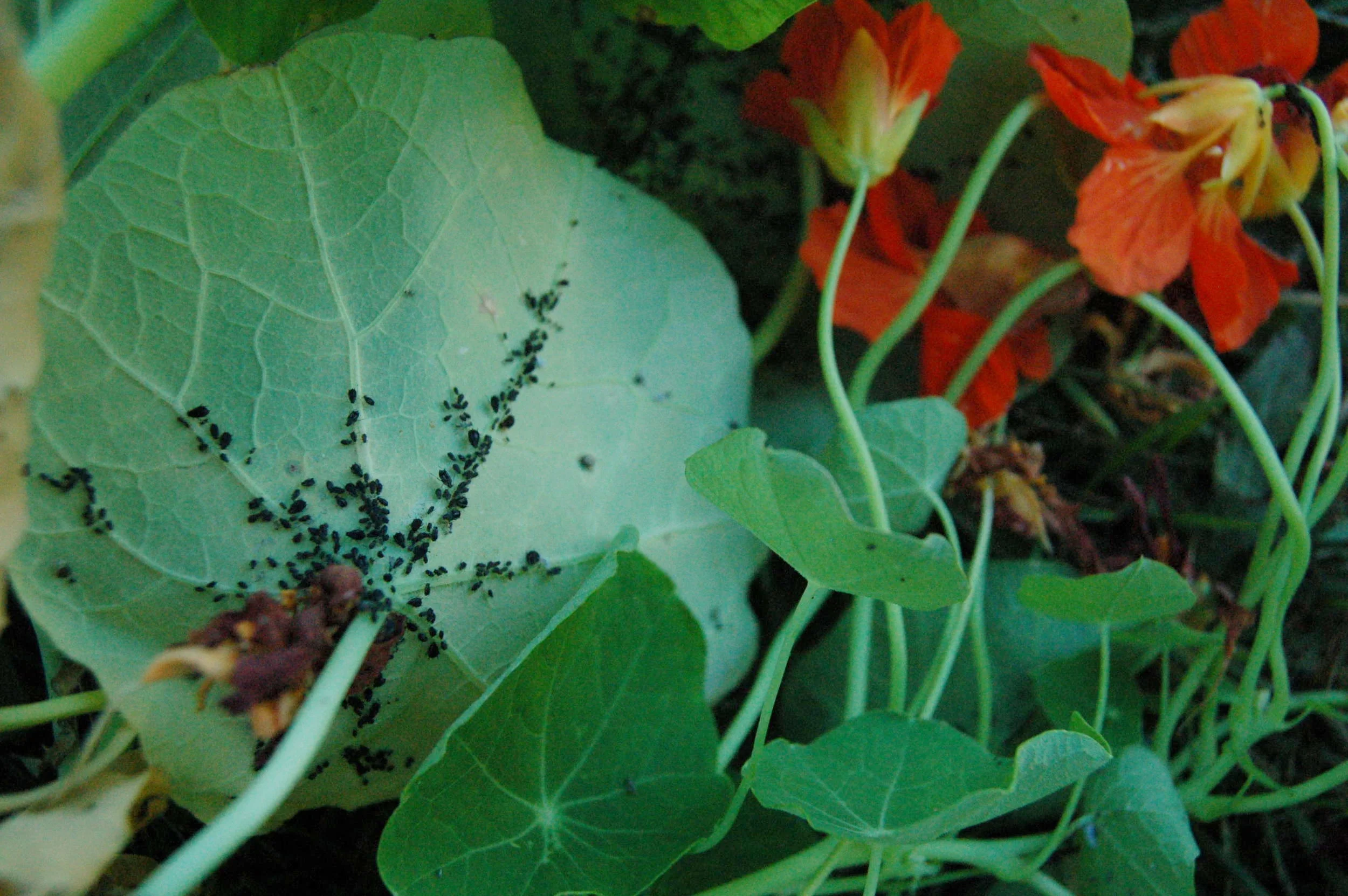In this episode, Hilary and guest expert Justin Wheeler of the Xerces Society will be talking about how to create an effective pollinator habitat in your garden by choosing cultivars that support beneficial insects.
HOW TO LISTEN:
Subscribe in iTunes , Stitcher, or any of your favorite podcast players to have new episodes sent directly to your device.
Listen right now in your browser by clicking above.
SHOW NOTES:
What is the Xerces Society?
Xerces Society is invertebrate conservation organization - so they work to promote the conservation of animals like bees, butterflies, freshwater mussels, and insects. Broadly their work is focused on restoring habitat for these animals, protecting endangered species, and making science based recommendations regarding pesticides, land use, and other factors that impact the health of invertebrates. In addition to advocacy and policy work, the Xerces staff is actively conducting research and also creating real-world habitat across the country
Wha's the difference between pollinators and beneficial insects?
There's a lot of overlap. In general, pollinators would mainly encompass bees and butterflies as insect pollinators, and "beneficial insect" may be used as a catch-all which would include beetles, wasps, flies and other insects that are seen as predatory as their first "job" and may be seen as pollinators second. The reality is that quality habitat should be supporting all of these insects - both pollinators and beneficials. If you're a gardener however, you may be more interested in attracting butterflies - and plant selections should reflect that. If you are a farmer and are interested in increasing pumpkin pollination for example, or building up populations of beneficial predators to support crop pests you'll want to tweak your habitat design in favor of those strategies
Why is it's important to for the home gardener or market farmer to incorporate pollinator habitat into their planting plans?
There's been a lot of research in recent years showing that pollinator populations are actually doing better in some ways in urban and suburban landscapes where they are largely protected from monocultures and pesticide use found on ag lands - so homeowners and gardeners are actually really well positioned to make a sizeable impact in promoting pollinators. For farmers the benefits are really clear - more pollinators mean higher yields and higher quality fruit set. Using insects as pest control can further this benefit by not only improving pollination but by acting as a first line of defense against crop pests.
What does the term cultivar mean?
The term cultivar is thrown around in the trade to mean any plant that's been bred for a specific characteristic. Some "cultivars" are really just "selections" - by that I mean someone found a phlox growing in the wild that's highly resistant to powdery mildew, so they bred that one plant out into the cultivar called 'Jeana'. The phlox is not really very different than the straight species in terms of its ability to support wildlife - it's just a selection from the straight species that happens to have good disease resistance. Another similar example is Rudbeckia 'Goldsturm'. It's been the most widely bred cultivar of black-eyed susan for decades. Almost any black-eyed susan you find in a nursery is going to be this cultivar. It was bred for shorter stems and for its habit of heavy flowering - but it came from a plant naturally showing these traits in nature.
How is a cultivar different than a hybrid?
When plants have been hybridized, they are bred to change their bloom or foliage color. Any plant that has been hybridized is going to be sterile, which means its not going to have pollen, and may have reduced nectar available. Some of my favorite cultivars of redbud are completely sterile - which make them useless for supporting pollinators. Lots of echinacea varieties have been bred to change the color of their bloom - which means they may actually flower in colors that pollinators can't see or are less attracted to. Lots of echinacea has also been bred to exhibit double-blooms or more complex flower shapes that pollinators can't even get into.
Not all plant cultivars are created equal when it comes to choosing the right plants for your pollinator garden. Why are some cultivars effective in creating habitat for beneficial insects, while others don't?
I want to be clear that I'm not saying cultivars are universally bad - but if your primary goal is to provide the best quality plants for pollinators, sticking to straight species or finding cultivars that are as close to the original as possible should be the goal. That said, I'm a realist, and I know that you're generally only going to find straight species native plants at nurseries that specifically specialize in them. I would just caution folks that if they see something at Lowes or Home Depot tagged "pollinator friendly" - that doesn't mean it truly is, and they may need to do a little research to find out what it was bred for.
Below: Honey bee on flowering cilantro
Books by the Xerces Society:
Related articles:
Like what you hear? Please share our podcast with a friend. Subscribe on iTunes or your favorite podcast player so you never miss a beat. And we'd really appreciate you showing us some love by leaving a rating and review on iTunes.
Have a topic you'd like see us dig in to? Leave us a note in the comment section below or #EBpodcast on Instagram and Twitter!
Your support is what keeps this podcast going! Any amount helps, so consider support us by making a one-time contribution:
More about this weeks guest expert:
Justin Wheeler is a Web and Communications Specialist at Xerces Society. He's also an expert gardener and pollinator enthusiast who is particularly well-versed in the types of plants and flowers that are most beneficial to pollinators.
https://xerces.org/
Instagram: @xercessociety
Facebook: @xercessociety
About the Host:
Hello, I’m Hilary Dahl. Outside of this podcast, my job is to help beginning and experienced growers create beautiful and productive gardens. I have the unique experience of working in on a wide range of projects, from small backyard garden plots to multi-acre vegetable farms. I also work in my own garden every day when I get home. This podcast is an opportunity to discuss seasonal garden topics and share the the joy of growing your own food.









